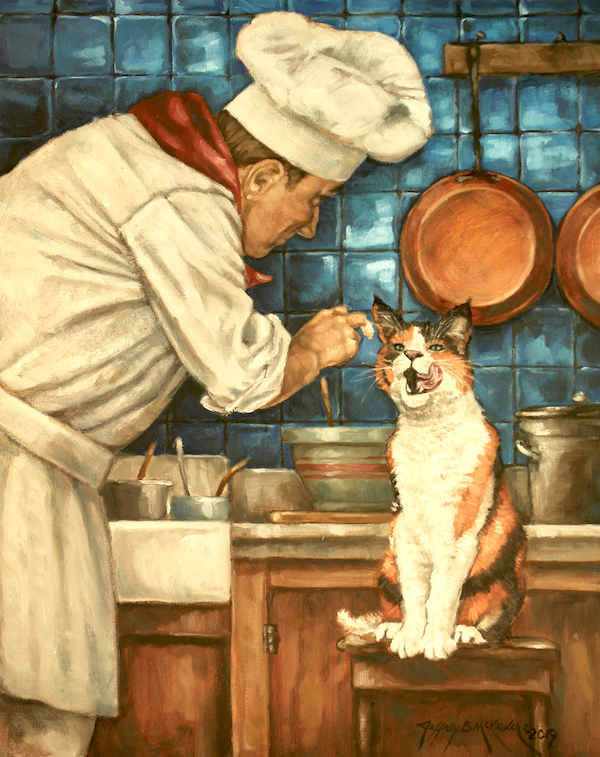‘The Amiable Fleas’ published for first time in English language and for only the second time in 65 years, after being discovered in vault of Steinbeck papers.

A light-hearted tale of a celebrated Chef’s love for his cat by John Steinbeck has been published for the first time in 65 years and, for the first time ever, in English.
The Strand magazine features the short story in its latest edition after its editor discovered it in a vault. The short story titled “The Amiable Fleas” is a poignant tale about a legendary gourmet, his beloved cat and confidant Apollo, and the impending visit of an influential restaurant critic.
The author of ‘Of Mice and Men’, ‘The Grapes of Wrath’ and ‘East of Eden’ lived in Paris in the mid-1950s, where he wrote a weekly column for the French daily ‘Le Figaro’ called ‘One American in Paris’. One of his pieces took the form of a short story, Les Puces sympathiques. Published in French on 31 July 1954, it was found by Andrew Gulli, Managing Editor of the Strand magazine, in Steinbeck’s papers at the Ransom Centre at the University of Texas at Austin.
This cat’s tale is light-hearted and resonant of Steinbeck’s love for Paris and its people. It is also a distinct departure from the gloom and doom – laden masterstrokes for which he’s synonymous with. Steinbeck himself admits that he might be “a novelist whose work is so despondent that the whole world flocks to him”. However, he also shares his positivity:
“As a species, we have been in trouble since we came down from trees and took up habitation in caves, but also, as a species, we have survived,” he writes. “We have not survived on great things, but on little ones, like a little story I have heard – probably an old, old, story. But this is the way I heard it.”
Steinbeck took up writing for Le Figaro after becoming frustrated with the skills of the journalists who visited him in his home near the Champs-Elysées.
“Here in France I get interviewed all the time. I spend hours with journalists helping them to make some kind of a story and then when it comes out it is garbled and slanted and lousy. I wondered why I did not write my own interviews and charge for those hours of time and have it come out my way,” he wrote to his agent Elizabeth Otis. “In other words, why should I not write 800 words a week for one French paper, simply called something like an American in Paris – observations, essay, questions, but unmistakably American.”
“The Amiable Fleas” is set in a Parisian restaurant of the same name, run by the chef, M. Amité, and his right-hand cat, Apollo, who serves not only as M. Amité’s companion, but also as his food critic. “Tasting a sauce,” Steinbeck writes, “the master dipped first and second finger, tasted his forefinger and held the second finger to be licked by Apollo. Thus the chef knew the cat’s taste and moreover had great respect for its judgment.”
M. Amité has earned one Michelin star and he’s angling for another. But calamity strikes and his beloved cat and loyal epicurean unexpectedly departs leaving the chef in a fluster. His plan to win back the affections of his cat results in a scintillating plot twist.
In an email to Smithsonian.com, Gulli notes that, like other Steinbeck works, “The Amiable Fleas” is rooted in friendship – “one of [the author’s] favourite themes”- and also “reflects his love for animals.” Indeed, 1962’s Travels with Charley in Search of America chronicles Steinbeck’s journey through nearly 40 states, which he undertook in the company of his French poodle.

